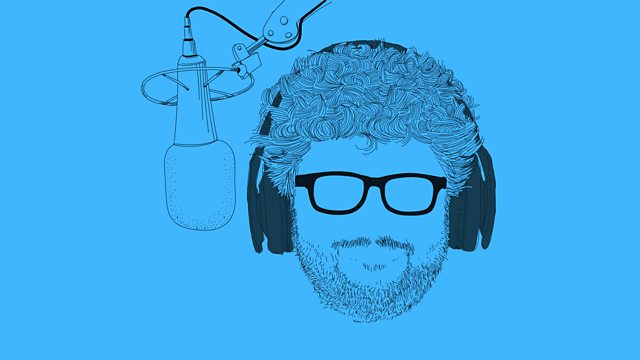Is Music a Universal Language?
In the third 'Listening Service' linking with the �鶹������ҳ���'s Civilisations series, Tom Service asks whether music really is a universal language.
What is music good for? In our concluding link with the �鶹������ҳ���'s Civilisations season, The Listening Service asks one of the most fundamental questions we can about music, a claim often made on the art-form's behalf in a list of reasons why it's an essential good: is music a universal language?
It's a seductive idea, that music's primal activation of the world of our emotions, bypassing the rationalising parts of our brains, means that it has an essential communicative function that carries across cultures in the way that no other phenomenon of the human imagination can. Music binds us together, because Beethoven and the blues sound the same and mean the same whether you're listening in Oklahoma or Osaka.
It's a nice theory, but on The Listening Service, we'll reveal the limits of these claims to the universal. And we'll suggest that music separates and defines us just as much as it brings us together. Not giving the game away, but music isn't a universal language: it's much, much more powerful than that - as we'll discover!
Last on
More episodes
Previous
Music Played
-
![]()
Ludwig van Beethoven
Symphony no. 6, Op.68 "Pastoral", 1st movement; Erwachen heiterer Gefuhle...
Performer: Tonhalle-Orchester Zürich. Performer: David Zinman.- Arte Nova Classics.
-
![]()
Bernie Leadon
The Hitch-Hiker's Guide To The Galaxy: Journey Of The Sorcerer
Performer: The Eagles.- Asylum Records .
-
![]()
Ludwig van Beethoven
Symphony no. 9 in D minor , Op. 125 "Choral", 4th movement; Presto - allegro assai
Performer: Gilles Cachemaille. Performer: Orchestre Révolutionnaire et Romantique. Performer: Sir John Eliot Gardiner.- Archiv.
-
![]()
Ludwig van Beethoven
Fidelio - Act 2: No. 16 Finale: Heil sei dem Tag
Performer: Arnold Schoenberg Chor. Performer: Lucerne Festival Orchestra. Performer: Claudio Abbado.- Decca.
-
![]()
Traditional
Teaching the Daughter from the opera Qin Xumei
Performer: Yan Lipin.- Marco Polo.
-
![]()
Traditional
Raga Desi, gat section
Performer: Ravi Shankar Group.- Eurotrend.
-
![]()
Traditional
Mbenzele Pygmies
Performer: Mbenzele Pygmies.- Inedit.
-
![]()
Traditional
Snoshti sum minal (Bulgaria)
Performer: Perunika Trio.- Arc Music.
-
![]()
Traditional
Suisei-Hanabu
Performer: Joji Hirota & the Taiko Drummers.- Arc Music.
-
![]()
George Frideric Handel
Messiah Part 2, no.42 - Hallelujah Chorus
Performer: Monteverdi Choir. Performer: English Baroque Soloists. Performer: Sir John Eliot Gardiner.- Philips.
-
![]()
Wolfgang Amadeus Mozart
Dies irae; Tuba mirum from Requiem
Performer: Accentus. Performer: Insula Orchestra. Performer: Laurence Equilbey.- NAIVE.
-
![]()
Giovanni Battista Pergolesi
Stabat mater in F minor - 1st movement Dolorosa
Performer: Andreas Scholl. Performer: Barbara Bonney. Performer: Les Talens Lyriques. Performer: Christophe Rousset.- Decca.
-
![]()
John Wilbye
Lady, when I behold from Madrigals, Book 1
Performer: Con Anima Chamber Choir. Performer: Divine Art. -
![]()
Ludwig van Beethoven
A Fifth of Beethoven
Performer: Walter Murphy. Performer: Big Apple Band.- RSO Records.
-
![]()
Ludwig van Beethoven
Symphony no. 5 in C minor, Op.67 - 1st movement; Allegro con brio
Performer: Berliner Philharmoniker. Performer: Sir Simon Rattle.- EMI.
-
![]()
Philp Glass and Ravi Shankar
Ragas in Minor Scale
Performer: Ravi Shankar. Performer: Philip Glass Ensemble.- Private Music.
Broadcast
- Sun 22 Apr 2018 17:00�鶹������ҳ��� Radio 3
Why do we call it 'classical' music?
Tom Service poses a very simple question (with a not-so-simple answer).
Six of the world's most extreme voices
From babies to Mongolian throat singers: whose voice is the most extreme of all?
How did the number 12 revolutionise music?
Why are we all addicted to bass?
Watch the animations
Join Tom Service on a musical journey through beginnings, repetition and bass lines.
When does noise become music?
We like to think we can separate “noise” from “music”, but is it that simple?
Podcast
-
![]()
The Listening Service
An odyssey through the musical universe, presented by Tom Service





